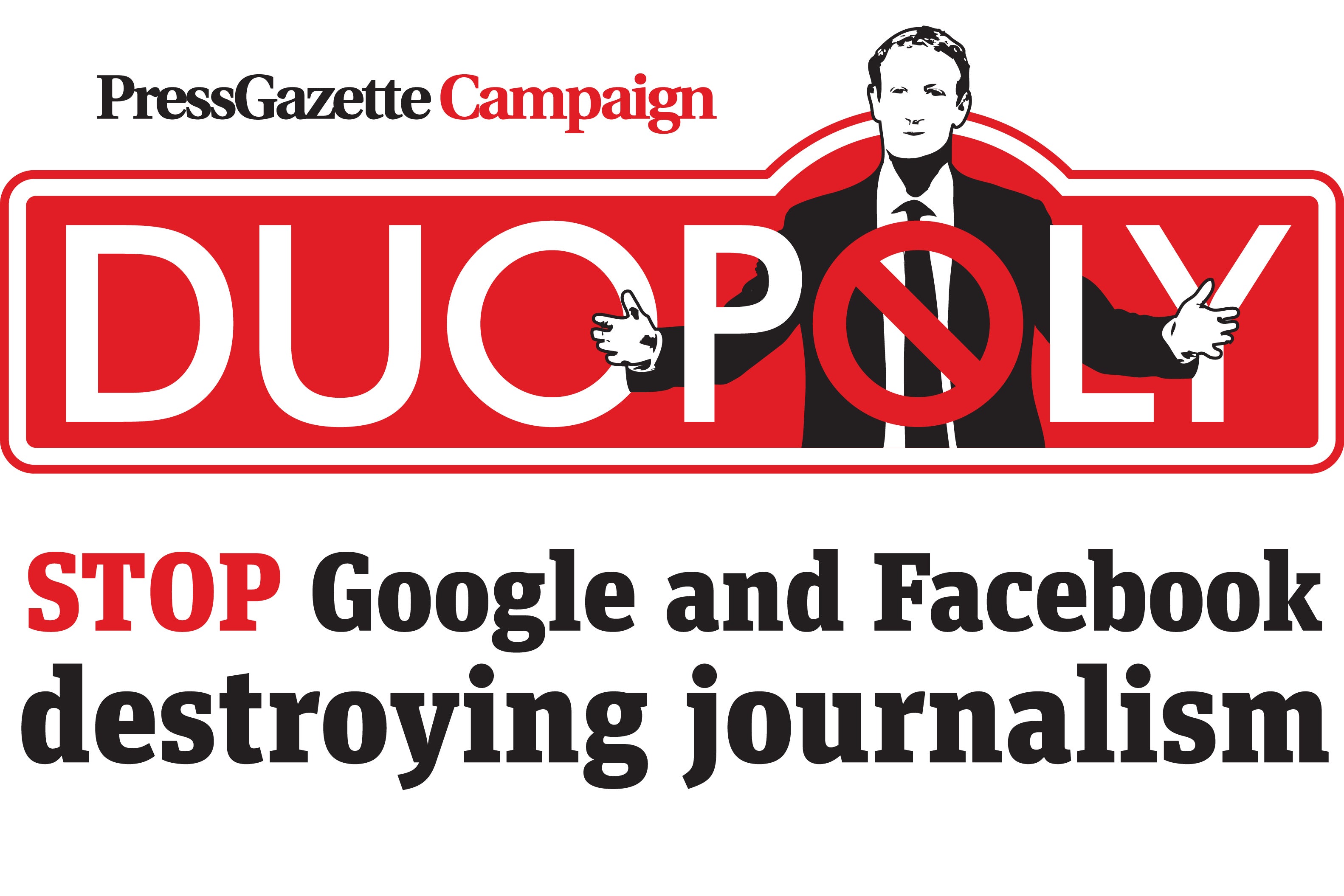
Press Gazette can exclusively reveal that influential journalists were wined and dined at expensive restaurants in London this week separately by senior executives from Google and Facebook.
I know because I was present at both of the private dinners. You do this job for years and no US technology/media leviathans take you out for a meal then two invites come in the same week.
As one of the key aims of Press Gazette’s Duopoly campaign is for Facebook and Google to share more of their billions with the news industry I felt duty-bound to drink as much Champagne as I could at these meet and greet suppers.
What was said at them was, I am afraid to say, off the record – as one would expect at such events.
But I can say that for my part I made the point as strongly as I could, in between mouthfuls of expensive food and wine, that the US giants need to share more of their gains with the news industry. And particularly the UK regional press, where newspapers seem to be closing every week at the moment.
Between, them as regular readers of Press Gazette will be aware, the Google/Facebook Duopoly take most of the £10bn a year spent on digital advertising in the UK.
They also appear to be accounting for 80 per cent of the new digital advertising money coming in.
For centuries advertising has subsidised the dissemination of news and the employment of reporters who hold those in power to account.
We are heading for a future where the vast majority of that advertising money is spent with technology platforms which don’t employ a single journalist.
Google and Facebook may not accept responsibility for the challenges faced by the news industry – but they are alive to them. And they give the impression at least that they sincerely want to help.
Since Press Gazette launched its campaign, to stop Google and Facebook destroying journalism, it seems to me that the atmosphere has changed.
I don’t know whether we have had any role in that but it feels like the pair are on the back foot and under attack from various quarters. For the first time the UK state is threatening to legislate directly against them and impose a ‘troll tax’ to improve internet safety.
I would argue that if they want to continue to enjoy the benefits of their monopoly positions in search and social media respectively – and collectively as holders of user data – then they must give more back to society. With vast power and wealth has to come responsibility.
The UK local media has fewer than half the boots on the ground, in town halls and courts around the country than it had a decade ago. Meanwhile the revenue and reach of the Duopoly in these local markets grows ever larger.
Whether a causal link between the two can be proven or not, it is not a good look.
Both Google and Facebook are currently experimenting with changes to their terms of trade which they say will benefit journalism.
Google is launching a mechanism by which publishers can sell subscriptions. It has also ended rules which insisted paywalled publishers gave away a certain amount of content if they wanted stories to appear in search.
Facebook is also preparing to launch new services for publishers which will help them sell subscriptions within the platform.
These are welcome developments, but the pair also need to find a way to share more advertising revenue with producers of quality news. Channel 4 News has achieved billions of video views on Google’s Youtube and Facebook – but complains that it receives a pittance in return. If this is the case for them, what hope for local news publishers who are embracing the new platforms?
Those dinners may have been expensive, but (as a wise man once said) fine words butter no parsnips. What is needed are actions to help ensure that quality journalism has a sustainable future online.
Email pged@pressgazette.co.uk to point out mistakes, provide story tips or send in a letter for publication on our "Letters Page" blog
